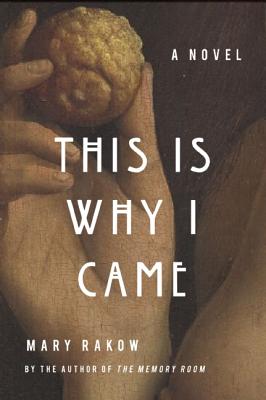The Best Short Story I Read in a Lit Mag This Week: “Miniature Lives of the Saints” by Anthony Wallace
Physical beauty is like an innate talent or gift in that it can provide wonderful opportunities to its possessor that aren’t as easily available to others, if at all. But every blessing can also be a curse. In “Miniature Lives of the Saints” by Anthony Wallace (Missouri Review 38:1) we meet a protagonist struggling with a beauty that has come to both define her and hold her captive.
Wallace reveals his protagonist’s struggle with identity early on. Though her given name was Kathleen, “Everybody knew her as Gretchen…That was just what her brother Tommy called her—had called her one time when they were teenagers—and it had stuck.”
Her whole life she’s taken what she’s been given and hasn’t sought out more…and those who are physically attractive are offered a lot. In the present, though she knows her looks could easily help her find her better work, she remains behind the counter of a CVS, and lives in an apartment above her mother’s restaurant. Meanwhile, her husband is in jail, and her brother’s friends hit on her incessantly—while Tommy just laughs.
“Yeah Tommy, that’s real funny, your sister is truly a remarkable piece of ass, the one thing in this world she still had…she was a strikingly beautiful woman. Only men smart enough and brave enough to become convicted felons were good enough for this raven-haired beauty!”
Notice what fuels the self-loathing of the last line: the perceived irony of her beauty. She’s not comfortable with her looks, but at the same time goes to great lengths to preserve them. Wallace tells us that she wears expensive, stylish boots even though they are painful to wear and she feels stupid in them. Like her looks, “The boots were perfect in every way, except they just didn’t fit.”
At an AA meeting she regularly attends, Gretchen deftly judges the other attendees based on her own preoccupation: appearance. But compared to their stories, hers is lacking when it comes to a sense of purpose. Notice a few of the phrases she uses to describe her life when it’s her turn to share: “That’s where we always ended up.”; “I just fell into life with him.”; “I didn’t really want to do that, but I ended up doing it anyway. I just drifted into it.” The verbs are almost all passive, outlining her resignation to the will of others.
Prodigies, whether in music, sports, spelling—or auctioneering—notoriously struggle with identity later in life. Who am I outside of my gifts and talents? Wallace presents physical beauty as justly capable of causing those problems.
So what does Gretchen do? After the AA meeting. she visits a local pizza parlor, and while there, adopts a prayer of Saint Brigid—a beauty herself—and begins destroying the boots.
“`Make me ugly,’ she said, and she began stepping on her boots, kicking and gouging at them, one with the other. `Make me ugly,’ she said a second time under her breath. She dug the heel of her right boot into the top of her left until she felt the leather begin to tear. `It’s all I’m asking.’”
We live in a culture that either associates being physically attractive with happiness and fulfillment, or dismisses it as shallow, meaningless, and only skin deep. Wallace gives us another narrative. Physical beauty is something whose power must be reckoned with. To be content and beautiful is far more difficult than it might appear.

